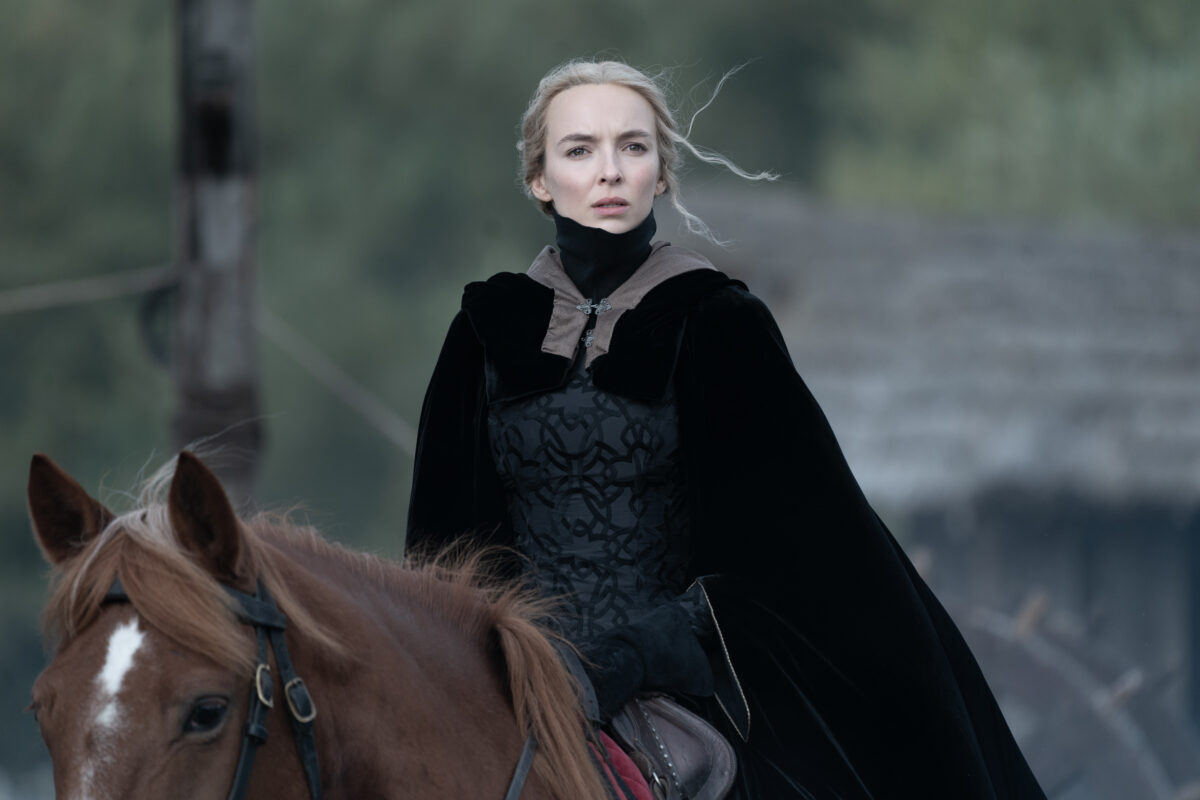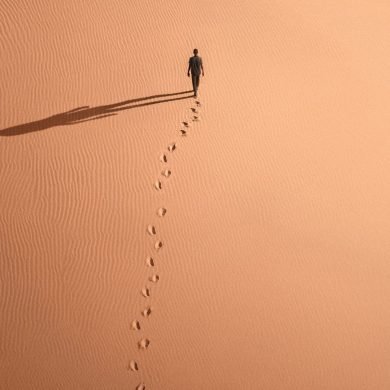Help keep The Curb independent by joining our Patreon.
It should always be acceptable to write reviews for films days, weeks, months or even years after they come out. Focusing only on getting out reviews first weakens the idea of getting them out at all. What’s the point in writing something if it’s not of decent quality? If we rush creative work, it will not last longer than the immediate.
Case in point: I saw The Last Duel a month ago. Having a full-time job absorbs time and attention that I would have usually set aside for writing reviews of films I just saw, but life is not like that. The testament of a good film now is if I’m able to, a month after seeing it and only watching it that one time, still recall its effect and power exactly. The imprint is left permanently.
Based on the book by Eric Jager, The Last Duel stars Jodie Comer as Lady Marguerite de Carrouges, a French noblewoman in the late 14th century who accuses Jacques Le Gris (Adam Driver) of rape whilst Marguerite’s husband Sir Jean de Carrouges (Matt Damon) fights elsewhere. Jacques and Jean were once friends, but since Jacques is protected by Count Pierre d’Alençon (Ben Affleck) and Jean sees his honour fading away, de Carrouges challenges Le Gris to a duel, the last legal duel of France.
The Last Duel should not have bombed, but it did. This is no indication of the film’s quality, more that the response was closer to several other films in Ridley Scott’s career. He’s no stranger to box office disappointments. Blade Runner, Legend, Someone to Watch Over Me¸ 1492: Conquest of Paradise, White Squall, G.I. Jane¸ Matchstick Men, A Good Year, All the Money in the World, and even massive films like Exodus: Gods and Kings and Alien: Covenant all barely made their budgets back or totally underperformed. There isn’t an explanation for it, and nor is it a serious mark on The Last Duel’s quality. Kingdom of Heaven was seen as a low point for Scott as a director upon release, but after the Director’s Cut audiences (especially myself) realised its full potential. Luckily, The Last Duel is quite a good film already, but the audience isn’t there. Oh well.
Some could argue that this demographic is to blame or it would have done better on this streaming service, but it is what it is. Scott and his cast and crew worked tirelessly and through a COVID shutdown to present a film with a vital message that you rarely see in historical dramas. Its construction as a kind of medieval Rashomon with a distinct female perspective is refreshing as we are now able to interrogate the storytelling of the past and keep alive those points of view untold.
The film is told from three points of view: de Carrouges, Le Gris, and Marguerite. Matt Damon as Jean de Carrouges is presented as a more heroic story. A noble knight tries to fight for his King and country, falls in love with a beautiful woman, marries her and promises to love her forever, only for his former friend to betray him and rape his wife. He seeks to honour her and do the right thing by challenging Le Gris to a duel. You believe in Damon’s earnestness just by his casting, the actor mostly choosing righteous heroes with strong moral cores. His awful period-accurate haircut is distracting, as if he asked his barber for the “Bailey Smith” and instead he gave him the “80s Lars Ulrich”.
We switch to Jacques Le Gris and how he sees events. Le Gris is close friends with Count Pierre, and fears that de Carrouges is too moral and absolute, often making himself out far too serious and stern to enjoy life. He sees his wife Marguerite as a trapped bird, locked away for no one but de Carrouges’ pleasure. How the screenplay unfolds here changes the situation, dialogue at first belonging to one character changes to another character, confusing the truth. It’s all a matter of perspective. One thing that shockingly remains quite clear is Le Gris actions towards Marguerite. He does, in fact, sexually assault her. Ridley Scott doesn’t back away from this or leave things up for interpretation. We are meant to see in Le Gris what he sees in himself: he is an evil man inside without remorse. Adam Driver is also perfectly cast, pointedly capturing the strong determination of Le Gris while also embracing his more vain pleasures, and finally focusing on the darkness within. Driver is one of our finest working actors and Scott knows this.
The final switch is the most important. The chapter of the story focusing on Marguerite’s perspective is titled as simply “the truth”. Nicole Holofcener, Matt Damon, Ben Affleck, and Ridley Scott all know this and have designed this film to present things as such. We skip over Jean and Marguerite’s courtship, suggesting that Jean did show the kind of love and kindness we saw in his particular chapter. This section of the story starts with their marriage, and we instantly know the differences. Jean de Carrouges is now a rather forceful and cruel man, completely centred on control. Their marriage is personified by loveless attempts at children, and Marguerite finds thankful solace in the company of delightful friends. The dialogue instantly feels different, Damon and Affleck writing the stoic and rigid first two chapters, and Holofcener taking over and delivering a character with life and true humanity, far beyond her male counterparts. Jodie Comer is a revelation here. She is beautiful inside and out, an intelligent person with no credit given, and a real human. What she sees is true and we believe it as such because of how Comer plays Marguerite, with delicacy and honesty that shines brilliantly. This makes the repeating rape scene even more brutal to watch, not just because we are forced to watch brutality twice, but because we know who Marguerite really is, beyond the male gaze of power-hungry knights. When de Carrouges returns, he belittles his wife, believes her story anyway, and insists on intercourse anyway to confirm his ownership of her.
The Last Duel is not finished there. It still has to deliver on the title. The trial now plays out distinctly from only Marguerite’s perspective as she is horrified to learn that not only have her once-good friends abandoned her over questions of honesty, but should de Carrouges lose his duel with Le Gris, then the King and landed gentry shall find Marguerite guilty under the eyes of God and mutilate her body then burn her at the stake. This battle of two men is not about her. It is only about pride and power. A woman’s life is merely sacrifice in the grand schemes of the world. The message may not be subtle, but it no less important today.
To call this a “#MeToo period piece” is folly. We are in a world of more realised perceptions of female perspectives, and that should be reflected in the art we create. Ridley Scott has always been a dynamic force in female representation on film, giving us characters like Ellen Ripley and films like G.I. Jane and Thelma & Louise. Having Nicole Holofcener craft a real woman inside a male-dominated historical drama is a stroke of genius, allowing Jodie Comer to deliver a magnificent performance inside a well-crafted and impactful film. The Last Duel is not easy, but it stays with you. The truth should always be told.
I can guarantee House of Gucci won’t be anywhere near as good.
Director: Ridley Scott
Writers: Ben Affleck, Matt Damon, Nicole Holofcener
Starring: Jodie Comer, Matt Damon, Adam Driver, Ben Affleck




